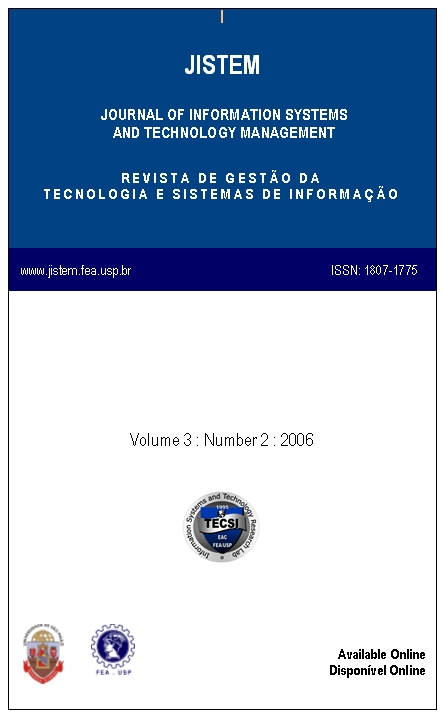Análise de flexibilidade em economia da informação: modelagem de equações estruturais
DOI:
https://doi.org/10.4301/S1807-17752006000200003Palavras-chave:
Flexibility, economy of information, organization, structural equations, environmental dynamicsResumo
This paper analyzes the new concept of flexibility in organizations - of relevance both at micro and macro level. Information Economy (IE) modern function is specifically analyzed. The purpose of this paper is not limited to the study of information economy flexibility, but extends its focus to other areas of organization and economic studies, having as reference the proposed model. Although not covering all aspects regarding objectives and hypotheses, results obtained demonstrate that subsequent studies can lead to success experiences, since the models presented are: stability in relation to the deviations presented in the resulting equations; values that are very close to what is desirable for adjustment indexes, factorial loads, t-values, extracted variances and reliability; as well as other necessary aspects for the application of the technique. The approach focuses the analysis of information economy flexibility based on structural equations modeling to serve as reference for the development of adaptation phenomenon studies in relation to structures, strategies and organizational processes, against the environmental dynamics contemporary society is faced with.Downloads
Os dados de download ainda não estão disponíveis.
Referências
Downloads
Publicado
2006-01-01
Edição
Seção
nd1615036468
Como Citar
Análise de flexibilidade em economia da informação: modelagem de equações estruturais . (2006). Journal of Information Systems and Technology Management, 3(2), 93-122. https://doi.org/10.4301/S1807-17752006000200003



